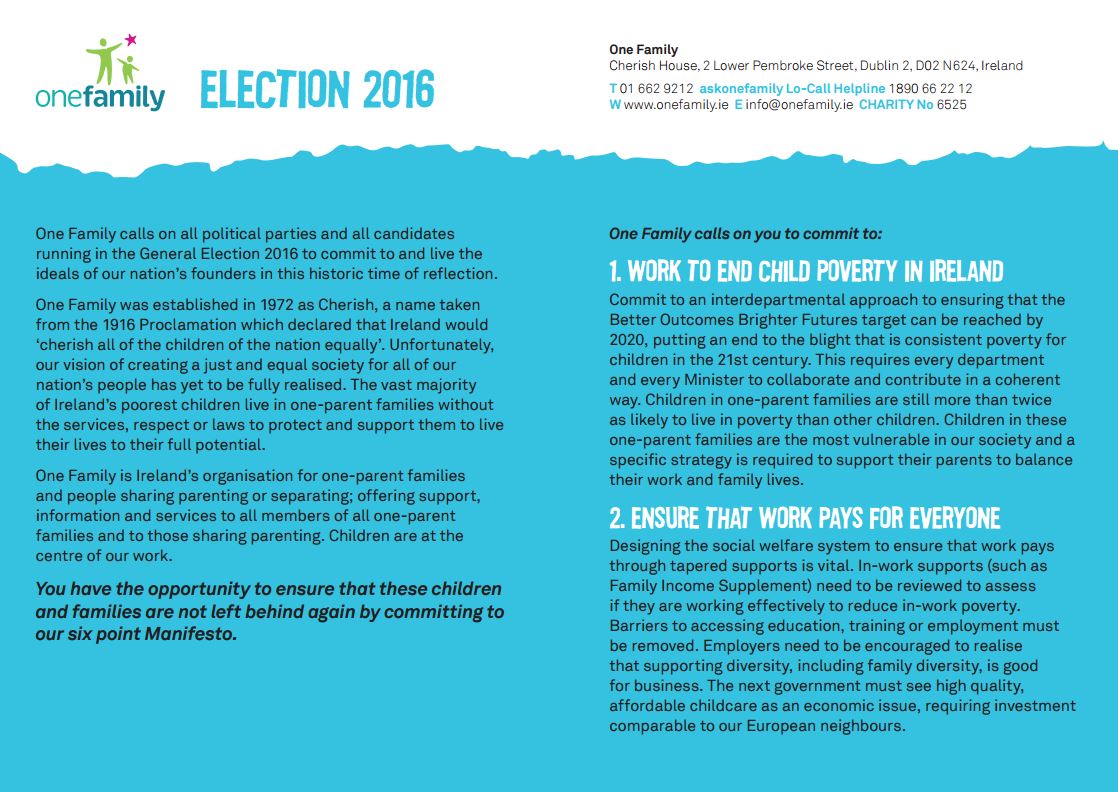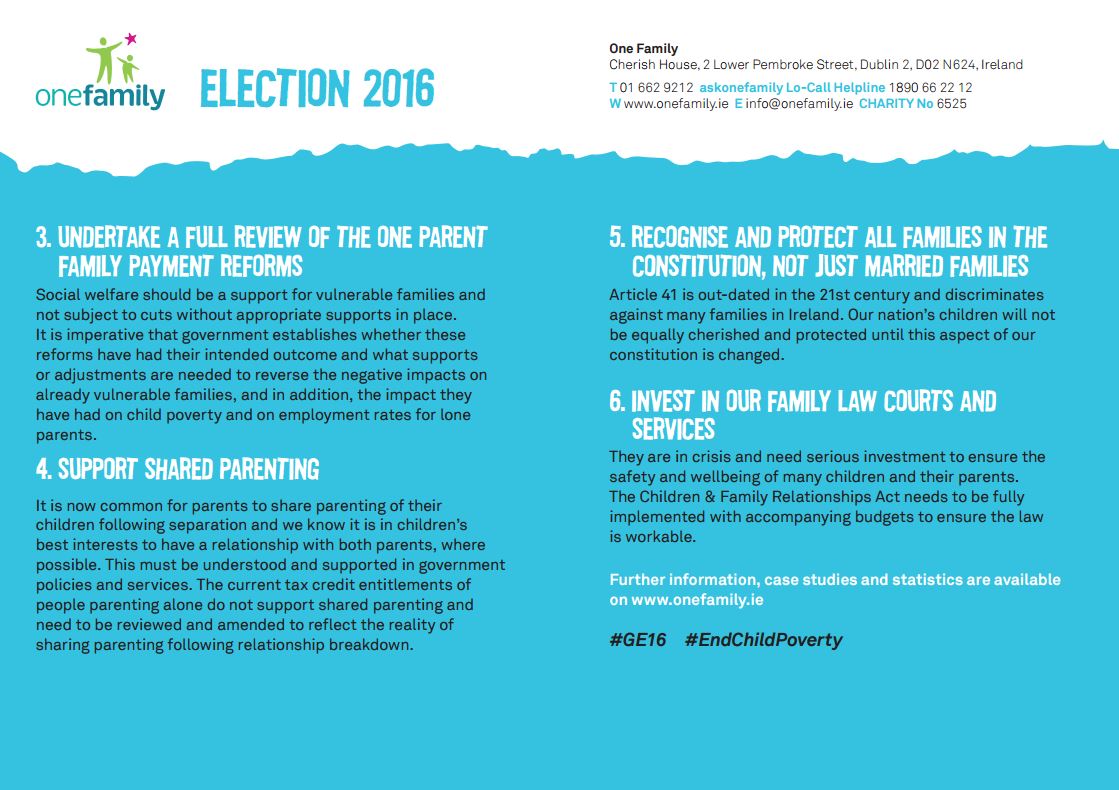 One Family has been campaigning for equal rights for lone parents and those who are sharing parenting in the lead up to the election. The One Family election manifesto has six key points that need to be addressed by the next government to ensure these concerns are heard and dealt with.
One Family has been campaigning for equal rights for lone parents and those who are sharing parenting in the lead up to the election. The One Family election manifesto has six key points that need to be addressed by the next government to ensure these concerns are heard and dealt with.
- Work to end child poverty in Ireland.
- Ensure that work pays for everyone.
- Undertake a full review of the One Family Payment Reforms.
- Support shared parenting.
- Recognise and protect all families in the Constitution, not just married families.
- Invest in our family law courts and services.
We have analysed each party manifesto to identify their commitments to these six points in the document below.
Election Promises to One Family
With just one week to go until General Election 2016, we urge everyone to email their local candidates to ensure that one-parent families are on their agenda. We are calling for six key commitments which you can read about below.
It’s easy to email all of your local candidates in just one minute; click here. You can also download two handy documents with questions and take away messages for candidates who call to your door, to help ensure that they know that these issues matter for all families in Ireland.
#GE2016 #EndChildPovery #MyFamilyMatters
Use the social share buttons below to ask your friends and family to support our Election Manifesto for one-parent families.
